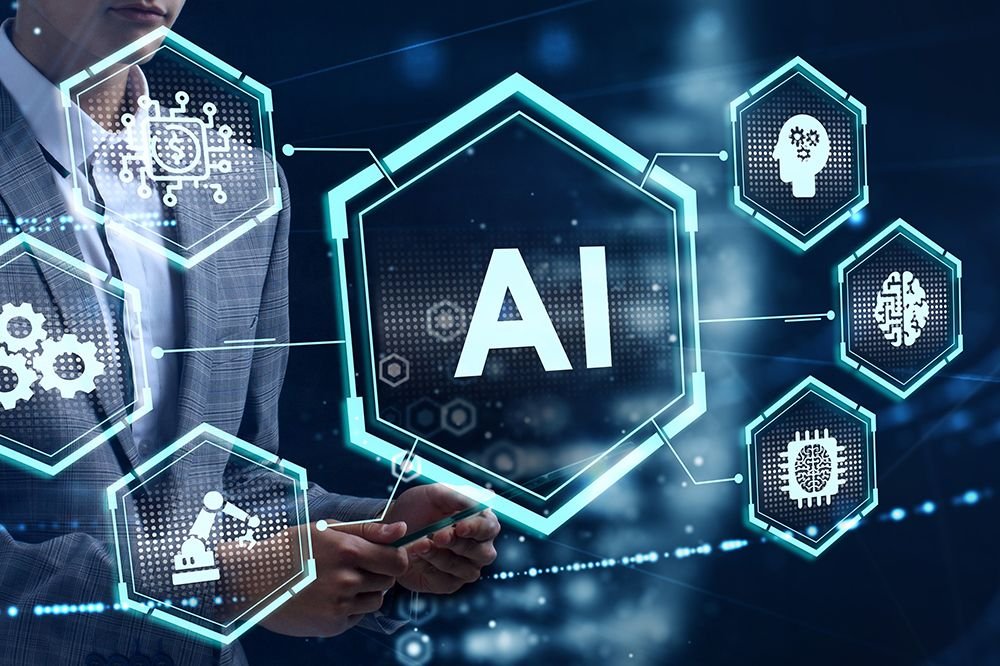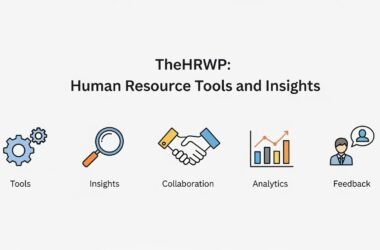Enterprise artificial intelligence (AI) transforms business decision-making by leveraging massive datasets to identify patterns and deliver real-time insights, enabling organizations to operate with increased speed, accuracy, and confidence. This shift enhances both operational efficiency and strategic planning across industries. AI assists leaders in predicting market changes, optimizing resource allocation, and tailoring customer experiences with greater precision, thereby reducing uncertainty by revealing hidden opportunities and risks. Consequently, decision-making is becoming more data-driven, proactive, and adaptable, providing a critical advantage in the contemporary business environment.
The Shifting Business Landscape and AI’s Arrival
In today’s hyper-competitive market, agility and data literacy are no longer just assets but necessities for sustained business success. Companies of all sizes are finding themselves in a race to digitize their operations and become truly data-centric, moving beyond old paradigms that relied on gut instinct and experience. Artificial intelligence (AI) has emerged as a catalyst for this transformation, shifting rapidly from a theoretical tool into an essential element for business innovation and operational resilience. As digital transformation sweeps through nearly every industry, the adoption of enterprise AI software is accelerating, ushering in a new era where decisions are powered by real-time insights and automated analysis.
Leading organizations across finance, logistics, manufacturing, and healthcare are deploying advanced AI systems to extract actionable insights from growing data, often reshaping industry standards and customer expectations. This trend extends beyond Fortune 500 companies to regional and mid-sized firms, viewing AI integration as essential for competitive advantage. Successful AI transformation requires organizational change, not just technology upgrades, reimagining core processes from supply chain to customer engagement and compliance. Unlike traditional tech improvements, enterprise AI transforms decision-making, with real-time data analysis and predictive modeling becoming vital for strategic and operational agility. This responsiveness can differentiate market leaders from laggards.
Top Benefits: What AI Brings to the Enterprise Table
Enterprise AI offers transformative value beyond automation by providing predictive and prescriptive insights to optimize operations and anticipate future needs. It enables businesses to analyze complex data sets rapidly and accurately, generating forecasts and recommendations that surpass human capabilities. AI facilitates pattern recognition, market demand prediction, bottleneck identification, and the discovery of new revenue opportunities, crucial in fast-paced sectors like just-in-time manufacturing, algorithmic trading, and dynamic pricing. Improved forecasting enhances internal decision-making, strengthens partnerships, and broadens market influence. Key benefits include faster analytics for competitive advantage, improved process efficiency by reducing manual intervention, enhanced accuracy leading to fewer errors, and the capacity for mass customization and personalization. This preemptive, rather than reactive, approach fosters agility, boosts productivity, and improves customer satisfaction, ultimately contributing to consistent growth and healthy margins, even in volatile markets.
The Rise of Data-Driven Decision-Making
Gone are the days when executives could afford to rely solely on intuition, partial data, or isolated reports for critical decision-making. Modern enterprises are flooded with information from multiple sources—internal systems, IoT sensors, social media, market feeds, etc. AI-powered platforms and analytics dashboards allow organizations to make sense of this complexity in real time, centralizing data across business functions into coherent, actionable insights. This shift towards a data-first mindset doesn’t just speed up decision-making; it makes those decisions more robust and evidence-driven.
The impact is profound: senior leaders and front-line managers are empowered with powerful visualization tools and automated recommendations, minimizing biases and incorporating external data to inform smarter business strategies. With real-time analytics, companies can identify inefficiencies, monitor key performance indicators as events unfold, and respond to changing customer needs based on live feedback. Ultimately, decision-makers can act swiftly to seize opportunities and mitigate threats—often before competitors notice them.
Real-World Applications: From Manufacturing to Customer Support
The promise of enterprise AI is being realized across sectors. In manufacturing, AI-driven predictive maintenance monitors equipment, forecasting failures to extend machinery life and reduce downtime, ensuring minimal disruption. Retailers use AI for supply chain logistics, demand forecasting, and personalized shopping experiences.
Customer support benefits from AI through chatbots and virtual assistants that handle routine queries quickly, allowing human agents to focus on complex, sensitive cases, enhancing customer experience and efficiency.
AI advances healthcare by analyzing medical images and health records, helping doctors diagnose earlier and more accurately. AI tools also customize treatment, improving care quality.
Changing Workforce Dynamics in the Age of AI
Integrating AI into business operations doesn’t only affect technology teams—it redefines workforce dynamics at every level. Automation increasingly handles repetitive, rules-based tasks, shifting the demand toward skills that complement and oversee intelligent systems. To keep pace, organizations are investing heavily in upskilling and reskilling programs to help employees develop expertise in data analysis, process automation, and AI governance. The evolution of these roles often sees humans handling tasks that require critical thinking, creativity, ethical judgment, and interpersonal acumen—areas where machines currently play a supporting role.
Organizations that successfully manage this transition position themselves to capitalize on AI’s full potential. Rather than displacing workers, the aim is to augment human capability, empowering employees to do more strategic work, solve complex problems, and innovate faster. Ultimately, a collaborative, tech-savvy culture that values lifelong learning will be decisive in maintaining a future-ready workforce.
Cultural and Ethical Challenges to Consider
While enterprise AI offers many benefits, it faces cultural and ethical challenges. Organizational resistance to change is a major hurdle, as people trust familiar patterns and may be uneasy about automated systems influencing decisions. Executive support and clear communication are crucial to help teams see AI’s strengths and alleviate fears of job loss. Ethical issues, such as data privacy, algorithmic bias, and transparency, are also critical. Biased AI can result in unfair practices, loss of trust, and penalties. Addressing these concerns openly helps build stakeholder confidence and a responsible innovation framework.
Looking Ahead: The Future of Enterprise AI
As AI research and commercialization move forward rapidly, the landscape for enterprise adoption will continue to evolve. Next-generation technologies such as generative AI, self-optimizing workflows, and advanced natural language processing are set to reshape everything from document processing and knowledge management to procurement and contract negotiation. With the rise of hybrid work and multi-cloud ecosystems, businesses benefit from greater flexibility, adaptability, and resilience, but will also need to adapt to shifting compliance and cybersecurity requirements.
Companies prioritizing continuous learning and keeping pace with fast-moving regulations and standards will be better positioned to experiment and innovate safely. Building a culture that celebrates experimentation and actively manages risk will remain critical for turning emerging AI technologies into sustained competitive advantages.
Conclusion: Balancing Opportunity and Responsibility
Enterprise AI marks a pivotal evolution in business decision-making. The opportunity to harness vast, complex data for faster, more accurate, and more strategic outcomes is transformative. However, realizing these benefits responsibly requires a comprehensive approach—addressing culture, skills, and ethical considerations alongside technology. By fostering transparency, upskilling teams, and deploying trustworthy AI systems, organizations can lead confidently into a future where innovation and accountability go hand in hand.







